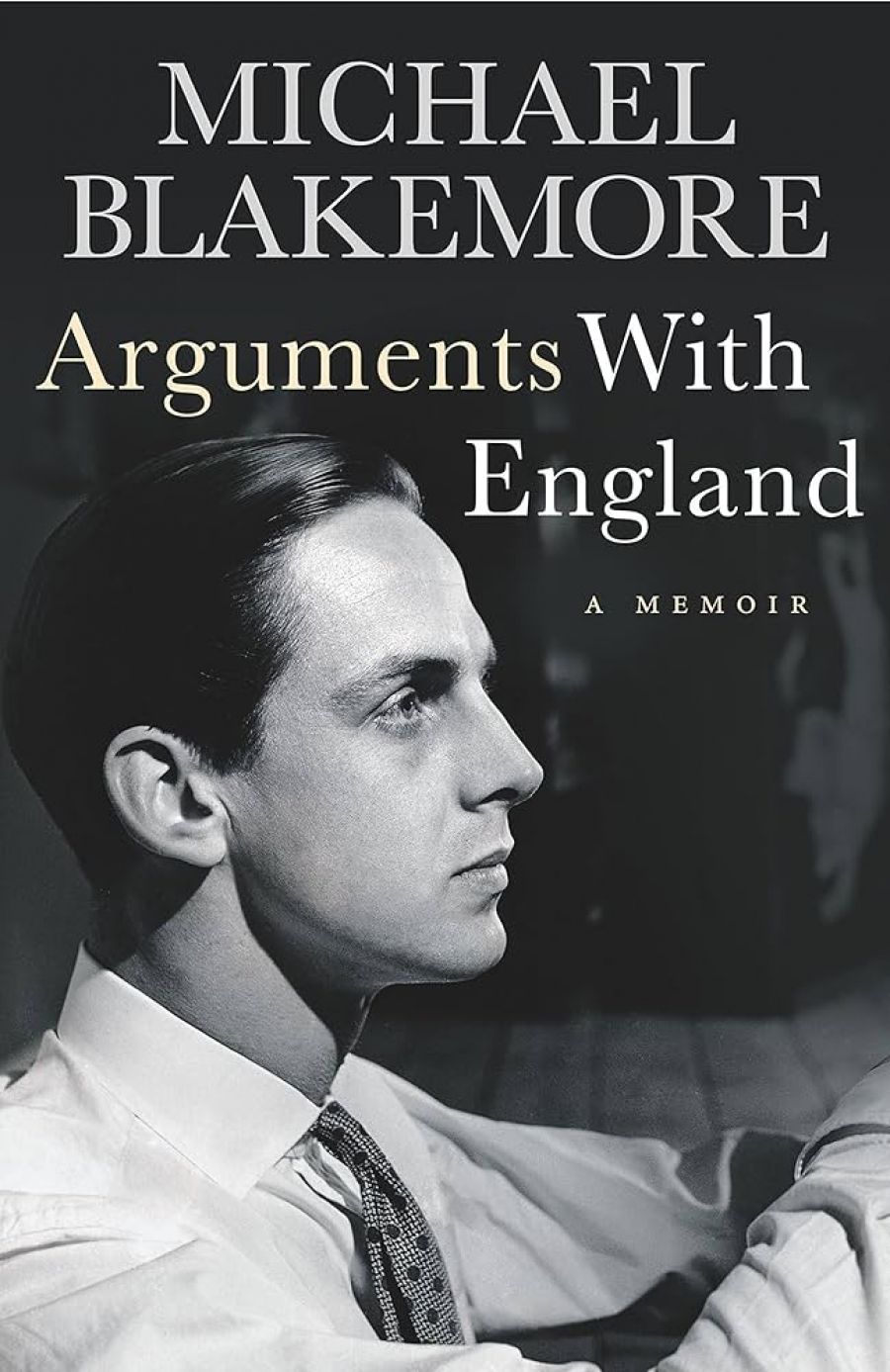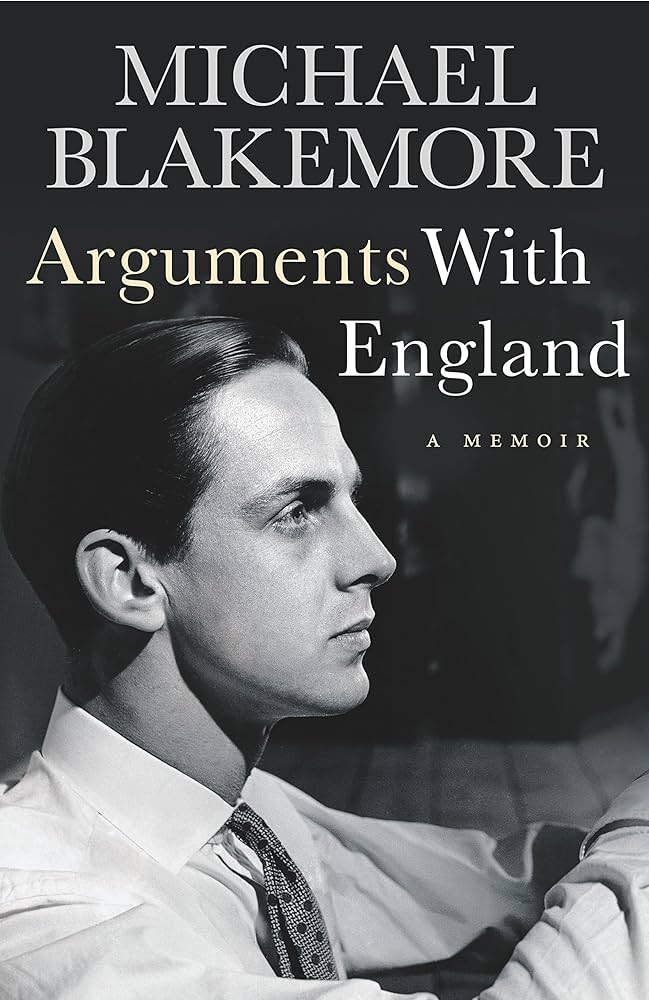
- Free Article: No
- Contents Category: Memoir
- Review Article: Yes
- Article Title: Blakemore's Life in the Theatre
- Online Only: No
- Custom Highlight Text:
Michael Blakemore’s memoir begins with his departure from Sydney in 1950 to study acting at RADA in London, and ends with him on the threshold of his new career in 1965 as director of such major successes as A Day in the Death of Joe Egg and The National Health. An early enthusiast of Bertoli Brecht, Blakemore made his name directing plays by Peter Nichols. He quickly acquired a reputation for independence and originality, staging plays by Arthur Miller, David Hare, Peter Shaffer, Don DeLillo, David Mamet and seven premieres by Michael Frayn. He worked with his actors, seizing on accidents to build moments of spontaneous truth. This memoir describes his initial fifteen years in English repertory theatre.
- Book 1 Title: Arguments with England
- Book 1 Subtitle: A memoir
- Book 1 Biblio: Faber, $59.95hb, 405pp
- Book 1 Cover Small (400 x 600):

- Book 1 Cover (800 x 1200):

The theatre became the locus of Blakemore’s life. He struggled for many years to find a place in English theatre that suited his gifts, only to discover his vocation was as a director. His ill luck was his good fortune: his knowledge of the actor’s craft gave him a greater appreciation of the actor’s work, unlike directors such as Peter Hall, who came to directing straight from university.
The 1950s and early 1960s were a golden era in English theatre. Blakemore does not dwell gratuitously on the famous or on his triumphs on stage or in bed (he had his share of affairs, with Vanessa Redgrave among others). Along the way, he fell out with Hall and Nichols, and suffered setbacks and periods of unemployment. His interest in the larger world, in English life, its politics, sociology and indeed psychology, makes this an absorbing book. He is especially good at characterising individual personalities, and his descriptions of English life will resonate with anyone who spent time in England during this period.
Blakemore is at his best recording people and atmospheres, and analysing how the stage, actors and text, like the mix of saltpetre, sulphur and charcoal, ignite a drama.
We are invited into this volatile and chaotic world of make-believe, we see what it does to people, how as an extension of its values they too are distorted or enlarged. Blakemore offers a special truth, not merely about the sacrifices, hardship and unique rewards of the actor’s life, and conveys theatre’s magic, which, in spite of everything, keeps individuals in its thrall.
Because Blakemore is himself a gifted writer, this is an absorbing memoir. One understands why, as a director, he places so much emphasis on text. He also knows people, a great strength in a director who sees his task as revealing the nature of our humanity. Much of the memoir is devoted to Blakemore’s time playing in repertory theatre in the north of England and to his encounters with people such as Guthrie and Olivier. One of the most moving and deeply felt passages is a tribute to Guthrie, who did so much to encourage drama in England and to foster new theatrical companies in Canada, the US and Australia. Blakemore consciously absorbed Guthrie’s organic approach to directing, helping actors to develop their interpretation of character.
Blakemore is a highly intelligent narrator, as frank about his flaws as he is generous about others. His inability to remain faithful to his partner is the source of much mutual unhappiness; this is set against the daily struggle to survive financially. This account highlights the gypsy quality of theatre life, its glorious highs and debilitating lows.
Moreover, Blakemore is a perceptive critic of the English class system. He is too egalitarian to put up with niggling class distinctions and the deference of class victims towards their social betters. He is irritated by Britons’ disdain for Australia and by their failure to acknowledge that anything important happens beyond Britain. ln the early 1970s he met David Williamson and took Don’s Party to the Royal Court and Travelling North to the Hammersmith Lyric; in the US, he directed The Club on Broadway and Money and Friends in Los Angeles. A keen surfer, Blakemore revisited Australia in his 1982 film, A Personal History of the Australian Surf. From afar, Blakemore takes pride in Australia’s progress:
It was probably the Opera House that began the process that saved us from ourselves, and the recent Olympic Games in Sydney, a brilliantly planned and executed success, brought that change to its completion. Australia could at last relax. It was its own somewhere, and there were now some delicious ironies for all Australians to enjoy. The country about which fifty years ago an Englishman had said to me, ‘funny thing, Orstralia’s a place I’ve never wanted to go’, was at the top of the list of destinations coveted by British travellers.
Arguments with England is the first instalment of an unfinished life, one that is far from over (recently, Blakemore was working in New York). The theatre is like that: always surprising, changing and challenging us. To stay with it, Michael Blakemore has had to match its intensity and dedication, all of which makes this book an engrossing reflection of its times, intense, probing and, above all, honest.


Comments powered by CComment